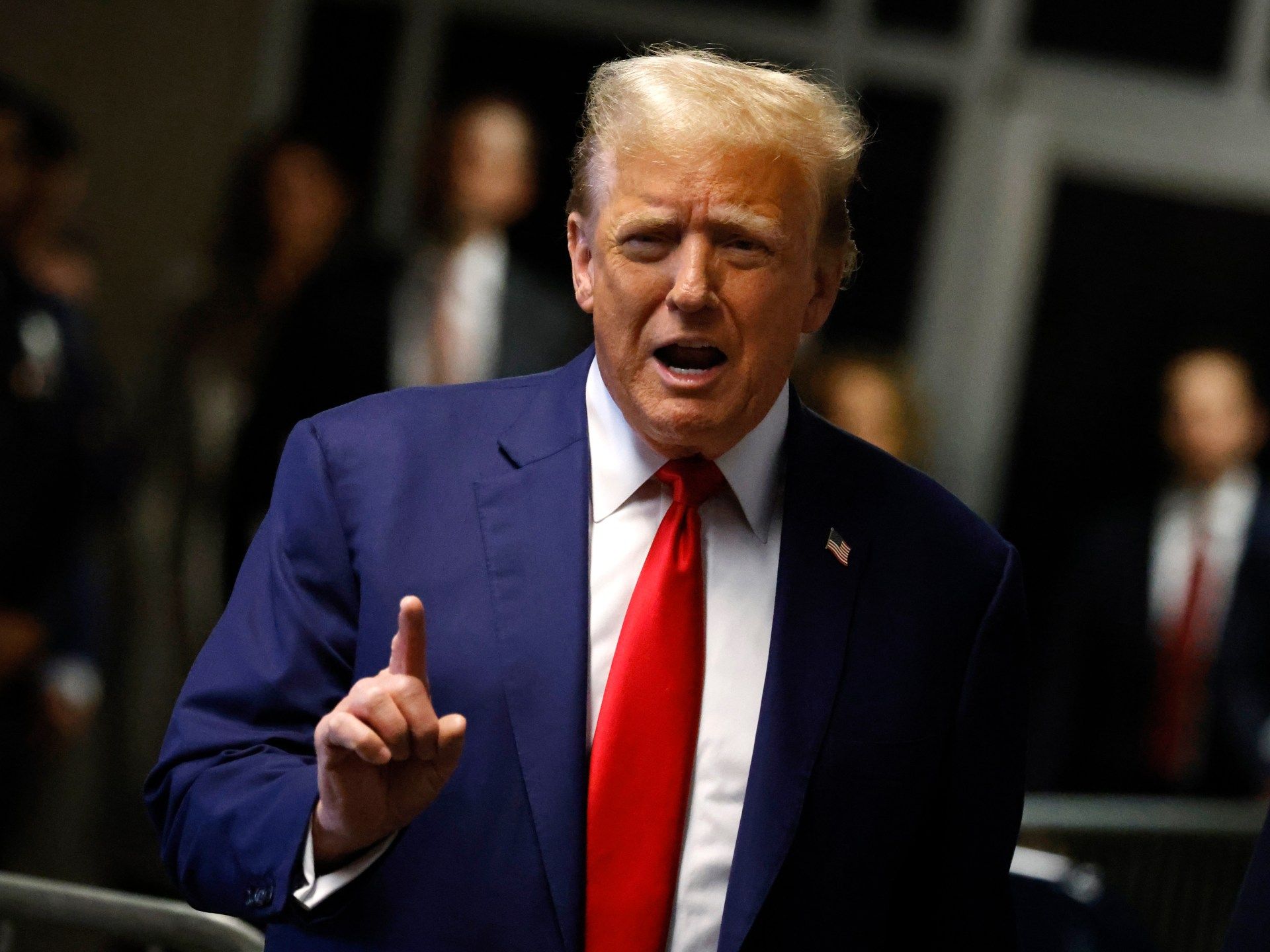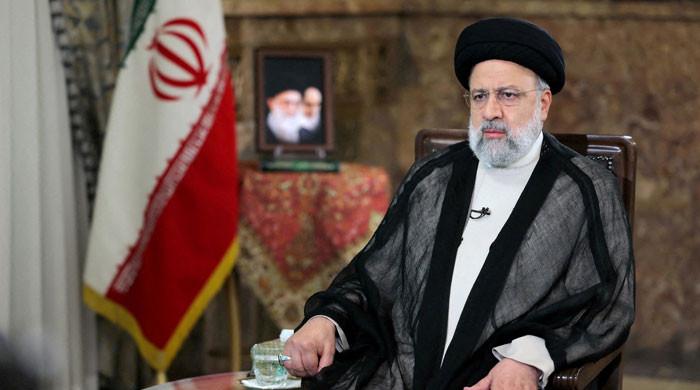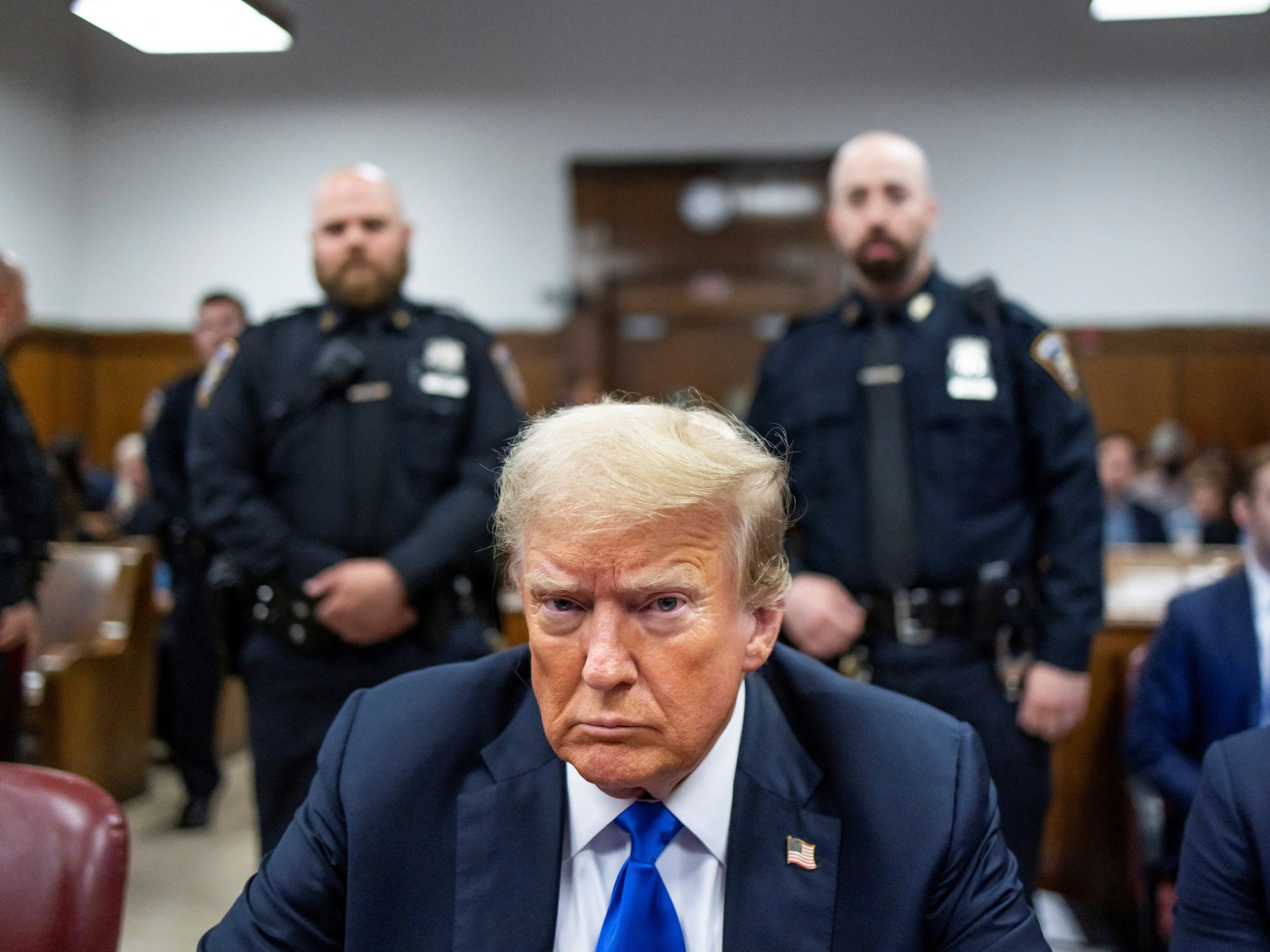A New York jury heard more testimony in the criminal trial against former US President Donald Trump, accused of falsifying business records linked to payments to maintain his silence before the 2016 election.
But even before the jury met on Monday, Judge Juan Merchán imposed another $1,000 fine on Trump and found him guilty of contempt of court for the 10th time for violating a gag order in the case.
“I do not want to impose a prison sentence and I have done everything possible to avoid it. But I will do it if necessary,” Merchan said from the bench.
Imprisonment would be an unprecedented step in the historic trial, which stems from hush payments that Trump's former lawyer, Michael Cohen, made to adult film star Stormy Daniels.
Prosecutors have argued that Trump himself directed the payments, in an attempt to silence Daniels, who claimed they had an extramarital affair.
Trump, who faces 34 felony charges in the case, is accused of participating in a conspiracy that aimed to “undermine the integrity” of the 2016 presidential election by suppressing information that would have been unflattering to his campaign.
After Merchan's ruling, jurors viewed bank records and heard testimony from two members of the Trump Organization (one a former employee, the other a current one) who discussed invoices and records related to the alleged hush payments.
Trump, who is the Republican Party's presumptive nominee for November's presidential election, has pleaded not guilty and accused prosecutors of trying to derail his re-election bid. He has also denied any sexual relationship with Daniels.
Here are five key takeaways from day 12 of the test.
Bank records shown
For the first time, jurors learned Monday about the refunds that are at the root of the charges against Trump.
Former Trump Organization controller Jeffrey McConney testified about conversations he had with the company's former chief financial officer, Allen Weisselberg, in January 2017 about reimbursing Cohen.
“Allen Weisselberg said we had to give Michael some money and we had to reimburse him. He threw a pad at me and I started taking notes of what he was saying,” McConney testified. “That's how I found out.”
Cohen, who had worked for the Trump Organization for about a decade, had just been removed from the payroll as a salaried employee. However, he had paid $130,000 to attorney Keith Davidson, who represented adult film star Daniels, in an effort to buy his silence.
A bank statement shown in court showed that Cohen paid Davidson $130,000 on Oct. 27, 2016, from an account for a shell company Cohen created for that purpose.
Weisselberg's handwritten notes about the reimbursement to Cohen were stapled to the bank statement in company files, McConney testified.
The notes detail a plan to pay Cohen a base reimbursement of $180,000, which covers the payment to Davidson and an unrelated technology bill. That total was then doubled or “rolled up” to cover the state, city and federal taxes Weisselberg estimated Cohen would incur in payments.
Weisselberg then added a $60,000 bond, for a total of $420,000, according to the notes.
The reimbursement payments were listed as legal fees, something prosecutors say underscores their claim that Trump falsified business records.
Payments made from Trump account, McConney says
After paying the first two refund checks to Cohen through a trust, the remainder of the checks, covering payments from April to December 2017, were paid from Trump's personal account, McConney also testified.
With Trump, the sole signatory of that account, in the White House, the change in funding source required “a whole new process for us,” McConney said.
McConney's own notes were also shown in court. After calculations that Cohen would receive $35,000 a month for 12 months, McConney wrote: “monthly DJT broadcast.”
When asked what that meant, McConney said, “That was from the president's personal bank account.”
McConney's testimony also addressed a key part of the case: how and why Cohen's reimbursement for the payment to Daniels was counted as a legal expense. He stated that he ordered an employee in the accounting department to do it.
All expenses had to be entered into the general ledger with a category code, and McConney directed the accounting team to enter the legal expense code: 51505.
“We were paying a lawyer,” McConney said of Cohen on Monday.
During cross-examination later that day, McConney acknowledged that Trump never ordered him to record Cohen's payments as legal expenses, nor did Weisselberg say Trump had intended them to be listed that way.
Trump's lawyer, Emil Bove, also noted that Cohen was a lawyer and that “payments to lawyers are legal expenses.”
Trump's team has argued that there was nothing illegal about the way Cohen was paid.
Another Trump Organization employee testifies
Prosecutors also called Deborah Tarasoff, the Trump Organization's accounts payable supervisor, to the stand on Monday afternoon.
Tarasoff received a 2017 email in which McConney told him to “account for legal expenses” for reimbursement payments to Cohen. She prepared the checks used to pay Trump's former lawyer.
Tarasoff testified about the process by which the checks used to reimburse Cohen were issued.
Most of the checks were paid from Trump's personal account and were signed by him at the White House, he said. He added that the checks would then come back with Trump's Sharpie signature.
“I would separate them, mail the check and archive the backup,” he said, referring to putting the invoice in the Trump Organization's filing system.
Two other checks shown in court came from Trump's revocable trust, which was used to hold his assets while he was president.
It bore the signatures of two trustees: Trump's son, Donald Trump Jr, and Weisselberg, the former chief financial officer of the Trump Organization.
The checks were recorded in internal records as legal expenses derived from an advance payment contract. Prosecutors allege the payments were mislabeled to conceal Cohen's repayment and the underlying hush payment.
Judge issues another fine against Trump
Monday's $1,000 fine against Trump was the 10th such sanction for violating a court-imposed gag order, which prohibits the former president from making comments about jurors, witnesses and families of court employees that could interfere with the trial. case.
But in issuing the fine, Judge Merchan noted that the nine previous fines of $1,000 each did not appear to stop Trump from violating the gag order.
“It seems that $1,000 fines do not serve as a deterrent. Therefore, in the future, this court will have to consider a jail sentence,” Merchan told Trump and his defense team.
The judge also emphasized that the prison sentence was “truly a last resort,” as it could disrupt the trial and have implications for Trump's 2024 presidential campaign.
But Merchan added that Trump's “continued and deliberate” violations of the gag order amounted to a “direct attack on the rule of law.”
The latest violation arose from an interview Trump gave on April 22 to a right-wing station, in which he criticized the makeup of the jury. “That jury was chosen very quickly: 95 percent Democrats. The area is mostly all Democratic,” Trump said.
Speaking to reporters outside the courtroom on Monday, Trump continued to strike a defiant tone.
“It's a ridiculous case, I did nothing wrong, absolutely nothing wrong,” Trump said, accusing the judge of stripping him of his “constitutional rights” with the gag order. “He has taken away my constitutional right to speak.”












